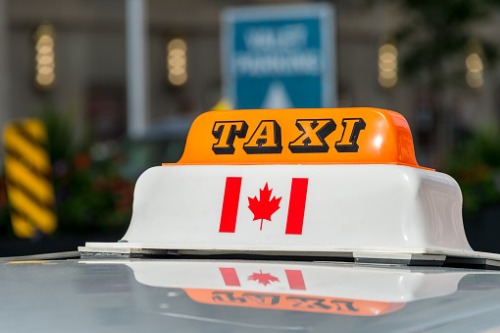

Taxis in the Greater Toronto Area are facing difficulties in securing proper insurance – and the problem is killing business if the dwindling number of drivers is any indication.
As per provincial regulation, taxis are required to have 24-hour commercial insurance. However, industry stakeholders said that more insurers as of late are dropping coverage due to the taxi industry’s increased risk.
Out of the over 5,000 taxis licensed in Toronto, 464 are currently suspended from operating because they have yet to submit updated insurance certificates, CityNews reported. But the Toronto Taxi Fleet Operators Association warned that another 1,000 taxis could be pulled from the streets later this month for lacking insurance, plus an additional 800 in September.
Taxi drivers and operators have since scrambled to purchase coverage from the remaining private insurance companies that are willing to serve them, because the alternative – facility insurance – would cost them even more.
Sam Moini, operator of HPM Taxis and president of the Toronto Taxi Fleet Operators Association, said that he was quoted more than $15,000 per vehicle and a $1,500 cancellation fee for facility insurance.
“It’s unaffordable, it’s unattainable,” Moini told CityNews. “If I did take the facility insurance, I would be doing it at a huge financial risk to myself and my business.”
Toronto has stated that it does not control insurance rates, and that taxis should approach either the Insurance Bureau of Canada (IBC) or the Financial Services Commission of Ontario. Both regulators, however, have maintained that there are more than enough insurers.
“There are currently 23 insurance companies licensed to provide commercial fleet automobile insurance,” a Financial Services Regulatory Authority spokesperson said in a statement to CityNews. “Not all 23 companies choose to offer auto insurance to taxis and the actual number fluctuates over time with market conditions.”
IBC also made a similar statement, noting that its data suggests that 95% of taxis in the area are insured by private companies, while the remaining 5% by the facility association.
“This could be a situation that is developing more but right now it looks like there’s availability within,” IBC director of consumer and industry relations Pete Karageorgos told CityNews. “I understand it could be a bit of a challenge for people to do the shopping around sometimes.”
